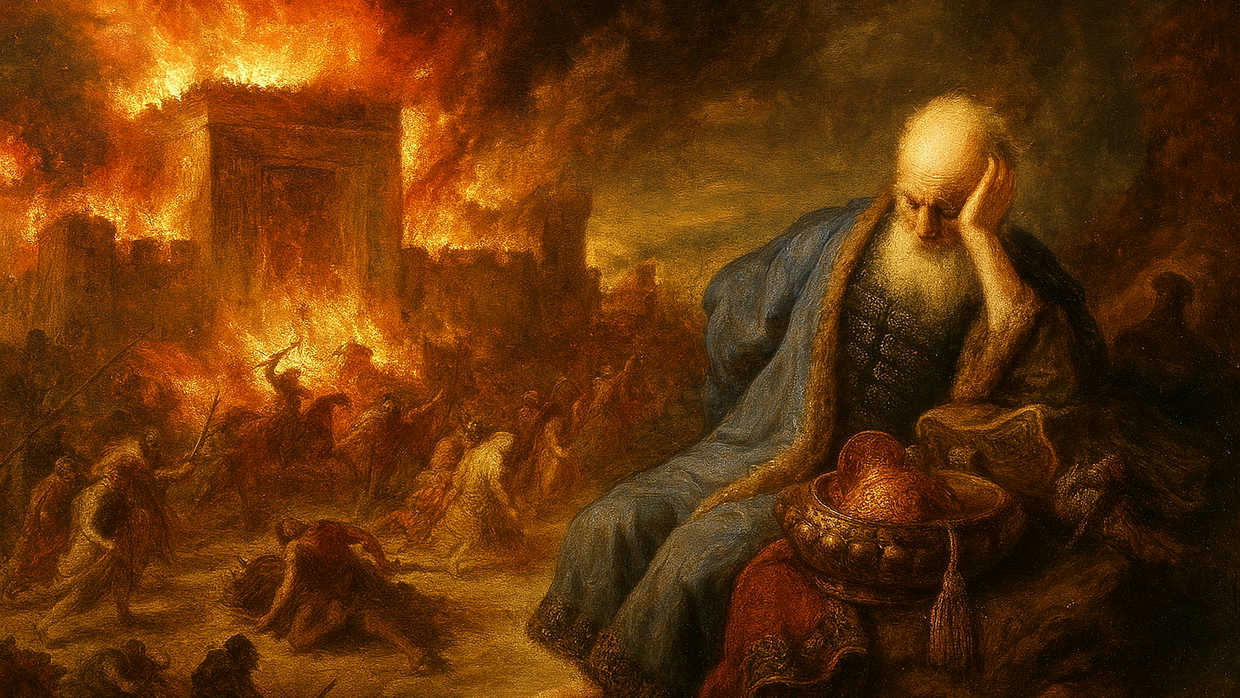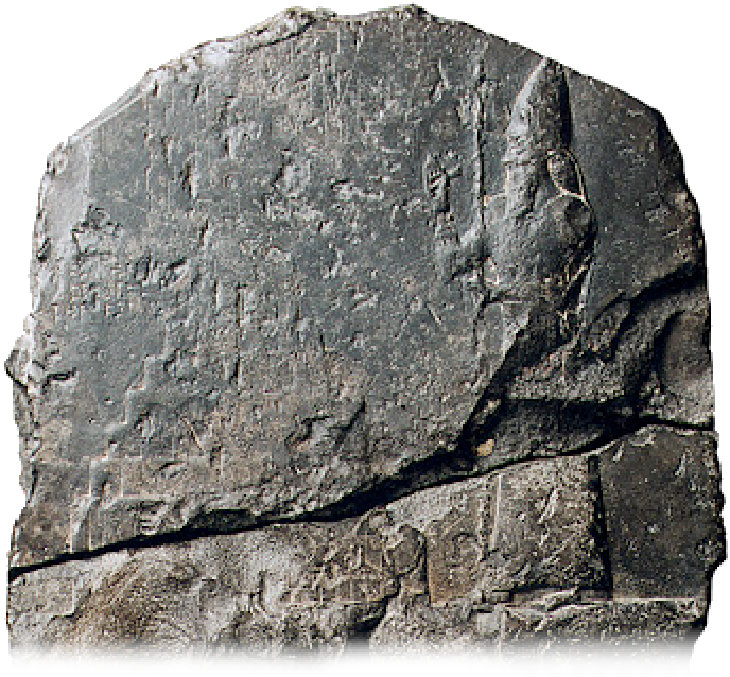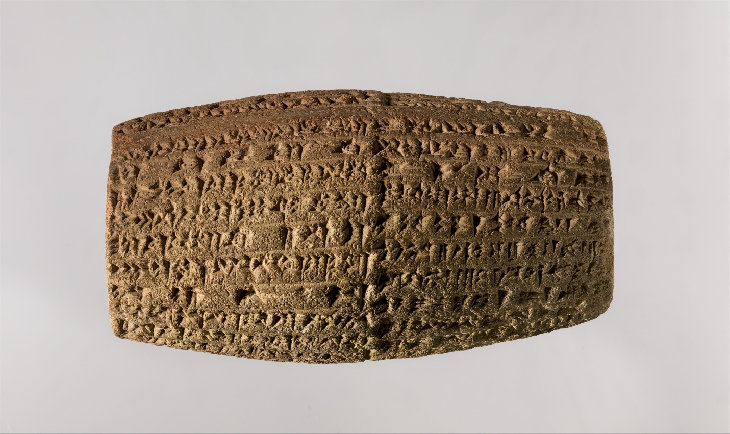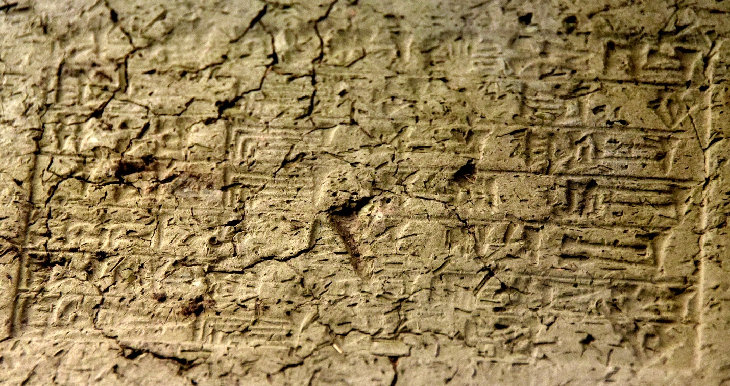 Jews Who Support Mamdani
Jews Who Support Mamdani


13 min read
The dramatic downfall of the First Temple and the spiritual blindness that sealed the Kingdom of Judah’s fate.
The First Temple Era was a period of intense spirituality. People encountered prophets in their daily lives and the Holy Temple in Jerusalem was the epicenter of this spiritual existence, where one could tangibly experience the Divine.
Conversely, in pursuit of spiritual highs, many people looked in all the wrong places. Idol worship was rampant. False prophets were selling their own ersatz version of sublime experiences. It was too easy to grasp at whatever made one feel good rather than engage in the hard work of genuine spirituality and self-reflection.
Towards the end of the First Temple period, the Kingdom of Judah remained independent but relatively small, extending from the Judean Hills to Beersheba. The northern kingdom, the Kingdom of Israel, had been conquered by Assyria. The ten tribes had been exiled and scattered all over the known world.
Despite its small size, the Kingdom of Judah was very much desired by the surrounding kingdoms. It stood at the intersection of cultures and civilizations. Powerful rulers saw it as a gateway to conquering the world. Both Egypt, the dominant superpower, and Babylonia, the emerging superpower, wanted to turn the Kingdom of Judah into their vassal country. Both demanded loyalty from the king of Judah, and both were willing to exact severe punishment for any breach of loyalty.
 A modern artistic depiction of the First Temple in Jerusalem. Israel Museum, Jerusalem, Israel. User:Tombah, CC BY-SA 4.0 <https://creativecommons.org/licenses/by-sa/4.0>, via Wikimedia Commons
A modern artistic depiction of the First Temple in Jerusalem. Israel Museum, Jerusalem, Israel. User:Tombah, CC BY-SA 4.0 <https://creativecommons.org/licenses/by-sa/4.0>, via Wikimedia Commons
The last king of Judah was Zedekiah. This was not his original name. After defeating the Egyptians at Carchemish, King Nebuchadnezzar of Babylonia advanced to Jerusalem and deposed King Jehoiachin, exiling him and the rest of Jerusalem’s elite to Babylonia. The Babylonians also looted the Temple and the royal palace1.
After emptying Jerusalem of its prominent residents and of its treasures, Nebuchadnezzar changed King Jehoiachin’s uncle’s name from Matania to Zedekiah and put him on the throne of Judah in return for an oath of loyalty.
Thus, King Zedekiah found himself in an unenviable position of having to please both the Babylonian king and the Egyptian Pharaoh, who remained a threat. At the same time, he had to rule over the people of Judah, who were too focused on the supernatural to take the real political threats seriously. They believed that God would save them from their enemies without any effort on their part.
King Nebuchadnezzar had ruled Babylonia for seven years by the time he put Zedekiah on the throne of Judah. Yet, his rule was far from secure. Babylonian chronicles from that time describe Nebuchadnezzar’s regular campaigns within his empire, with the goal of demonstrating his might, intimidating potential rebels, and collecting tribute from all his vassal states.
Two years after Zedekiah came to power, Nebuchadnezzar’s own army rebelled against him in Babylonia itself. A Babylonian chronicle states2, “With arms he [Nebuchadnezzar] slew many of his own army. His own hand captured his enemy.”
Though successful in putting down the rebellion, Nebuchadnezzar remained on guard.
 Panorama view of the reconstructed Southern Palace of Nebuchadnezzar II, 6th century BC, Babylon, Iraq. Osama Shukir Muhammed Amin FRCP(Glasg), CC BY-SA 4.0 Wikimedia Commons
Panorama view of the reconstructed Southern Palace of Nebuchadnezzar II, 6th century BC, Babylon, Iraq. Osama Shukir Muhammed Amin FRCP(Glasg), CC BY-SA 4.0 Wikimedia Commons
After witnessing King Nebuchadnezzar’s cruelty and greed during his campaign in Judah, the local residents’ attitude toward the Babylonian king was far from positive. The independently minded people of Judah yearned for Nebuchadnezzar’s defeat, and some actively advocated rebelling against him.
The news of a rebellion in Babylonia only spurred them on. The false prophet Hananiah ben Azur announced3, “So said the Lord of Hosts, the God of Israel, saying: I have broken the yoke of the king of Babylon.”
The scholar and author Rabbi Yehuda Landy writes4:
Such a declaration probably fell on attentive ears, in light of the rebellion that occurred just a few months earlier in [Babylonia]. The rebellion inflated false hopes that the regime of [Nebuchadnezzar] would crumble, and the Jews living in exile would be permitted to return to their homes in [Judah].
Rabbi Landy hypothesizes that the kings of the surrounding countries, such as Edom, Moab, and Ammon, had gathered to rebel against Nebuchadnezzar. They had the backing of Egypt. Though King Zedekiah might have considered joining the rebellion, ultimately he decided against it. Moreover, he personally travelled to Babylonia to deliver his tribute and affirm his loyalty5. This move might have saved the Kingdom of Judah, but it also likely antagonized King Zedekiah’s political opponents, including the influential false prophets.
 A portion of the "Tower of Babel stele", depicting Nebuchadnezzar on the right. Robert Koldewey (10 September 1855 – 4 February 1925), Public domain, via Wikimedia Commons
A portion of the "Tower of Babel stele", depicting Nebuchadnezzar on the right. Robert Koldewey (10 September 1855 – 4 February 1925), Public domain, via Wikimedia Commons
At the time, one of the prominent figures in Jerusalem was Prophet Jeremiah. Revered by some and despised by others, Jeremiah was perhaps the most misunderstood prophet in Jewish history. Though he gained a reputation as a prophet of doom, his basic message was pragmatic and down-to-earth: submit to the Babylonian Empire and survive as a nation in its own land.
Like other prophets, Jeremiah exhorted the Jewish people to be faithful to God and to pursue justice. He proclaimed in the name of God, “Execute justice in the morning and rescue the robbed from the hand of the robber, lest My fury go forth like fire, and it burn with no one to extinguish [it], because of the evil of your deeds6.”
#Jeremiah’s words went largely unheeded. People much preferred the words of the false prophets who promised the world without requiring any changes in their conduct.
Unfortunately, Jeremiah’s words went largely unheeded. People much preferred the words of the false prophets who promised the world without requiring any changes in their daily lives and conduct towards others. Jeremiah wrote7, “For both prophet and priest are false; even in My house have I found their evil, says the Lord… And in the prophets of Jerusalem I saw a horrible thing, committing adultery and going with falseness, and they encouraged evil-doers, that none returns from his evil…”
Understanding that the Jewish people were not anywhere near the spiritual level they had imagined themselves to be, Jeremiah tried to convince them not to expect a miraculous salvation from King Nebuchadnezzar and his army. He confronted the false prophets, who claimed8, “The Lord has spoken, ‘You shall have peace.’” He warned of the very real danger presented by the Babylonians.
Instead of recognizing the danger, the royal officers and the false prophets attacked Jeremiah himself. On numerous occasions, Jeremiah was beaten, imprisoned, accused of treason, and threatened with death penalty.
Among growing unrest within his own kingdom and the external pressure from Egypt, in the ninth year of his reign, King Zedekiah rebelled against Babylonia.
It is unclear what exactly had changed since King Zedekiah refused to get involved in a rebellion a few years earlier. Rabbi Landy speculates that the Egyptian Pharaoh kept threatening the tiny Kingdom of Judah, demanding King Zedekiah’s loyalty in his fight against Babylonia. Though less powerful than Babylonia, Egypt remained a superpower in its own right, and geographically, it was much closer to Judah than King Nebuchadnezzar and his army. Rabbi Landy concludes that King Zedekiah “it appears, was constantly stuck between a rock and a hard place, and would thus pay a price for any decision in either direction9.”
In return for his allegiance, the Pharaoh of Egypt promised King Zedekiah horses, known as the best in the world, and military protection.
Nearby nations also aligned themselves with Egypt and joined the rebellion.
When King Nebuchadnezzar heard about the rebellion, he gathered his army and marched towards the rebels. He set up his camp at Rivlah, today near the Lebanon-Syria border. The Babylonians stayed in the area for a long time, with Nebuchadnezzar directing his campaign in Judah from there.
 Cuneiform cylinder: inscription of Nebuchadnezzar II describing the construction of the outer city wall of Babylon. The Met Museum, public domain
Cuneiform cylinder: inscription of Nebuchadnezzar II describing the construction of the outer city wall of Babylon. The Met Museum, public domain
After some deliberation, Nebuchadnezzar headed towards Jerusalem. Along the way, he left parts of his army to fight other fortified cities in Judah. When he got to Jerusalem, on the 10th of the month of Tevet, in the eleventh year of King Zedekiah’s reign, Nebuchadnezzar surrounded Jerusalem and laid siege to the city. Leaving his army there, Nebuchadnezzar himself returned to Rivlah.
The siege lasted for a year and a half. At first, the residents of Jerusalem were not too worried. After all, the Egyptian Pharaoh had promised them protection.
For his part, the Pharaoh made a valiant attempt to keep his word. He left Egypt with his army and headed towards Jerusalem.
Upon hearing of the Egyptian advance, the Babylonian army withdrew from the siege, to Jerusalemites’ great joy. However, the Pharaoh never made it all the way to Jerusalem. He conquered Gaza, hoping to scare the Babylonians away.
Rabbi Landy explains10, “Despite his success, it simply appears that Pharaoh was afraid of entering into battle with the army of [Nebuchadnezzar]… When Pharaoh saw that the Babylonians turned to fight against him, he withdrew back to Egypt.”
The Babylonians renewed the siege. They built towers and siege ramps to shoot at the city’s defenders. They brought battering rams to break the city walls.
During the siege, King Zedekiah remained conflicted about whether to fight back or to surrender. When the Babylonian army temporarily withdrew due to the Egyptian advance, King Zedekiah, filled with hope, sent a delegation to Prophet Jeremiah, asking him to pray for the Kingdom of Judah.
Jeremiah’s response, however, was not reassuring: “Pharaoh's army that has come out to aid you is returning to his land Egypt. And the Chaldeans11 shall return and wage war on this city and capture it and burn it with fire12.”
Aware of the danger his honesty posed, Jeremiah attempted to leave Jerusalem. However, he was arrested at the city gates and accused of attempting to defect to the Babylonians. Turning a deaf ear to Jeremiah’s protest of the ridiculousness of the accusation, the royal officers threw him into a dungeon, where he remained for a long time.
Meanwhile, the siege resumed and conditions in Jerusalem worsened. Out of desperation, King Zedekiah turned to the only person who had always offered the truth rather than useless flattery: Prophet Jeremiah.
Secretly, King Zedekiah took Jeremiah out of the dungeon and asked him for a word from God. But Prophet Jeremiah’s prediction did not change: “You shall be given into the hand[s] of the king of Babylon13.”
#Upset with Jeremiah’s words, the king’s officers demanded permission to put Jeremiah to death.
Jeremiah asked the king to ease the conditions of his imprisonment. King Zedekiah transferred the prophet to the prison yard and ordered to provide him with a daily loaf of bread.
Unlike the dungeon, the prison yard was a public space, with many people coming and going. Concerned for the fate of his nation, Jeremiah spoke to the people, urging them to surrender: “Whoever stays in this city shall die by the sword, by famine, or by pestilence, and whoever goes out to the Chaldeans shall live14.”
Upset with Jeremiah’s words, the king’s officers demanded permission to put Jeremiah to death. King Zedekiah admitted to his own powerlessness in his response, “Here he is in your hand[s], for the king cannot [reply] anything to you15.”
The officers threw Prophet Jeremiah into a pit, where he would have died if it wasn’t for another of king’s servants, who convinced the king to rescue the prophet.
After the rescue, King Zedekiah summoned Prophet Jeremiah for another secret meeting. Again, he asked the prophet for the word of God, swearing not to put him to death, no matter what the response.
Once again, Jeremiah advised surrender: “If you go out to the officers of the king of Babylon, your soul shall live, and this city shall not be burnt with fire, and you and your household shall live. But if you do not go out to the officers of the king of Babylon, this city shall be delivered into the hand[s] of the Chaldeans, and they shall burn it with fire, and you shall not escape from their hand[s].16”
But as the famine in besieged Jerusalem intensified, King Zedekiah was too afraid to follow Jeremiah’s counsel.
 Clay brick inscribed with the name of Nebuchadnezzar from Babylon, Iraq. Pergamon Museum. Osama Shukir Muhammed Amin FRCP(Glasg), CC BY-SA 4.0 Wikimedia Commons
Clay brick inscribed with the name of Nebuchadnezzar from Babylon, Iraq. Pergamon Museum. Osama Shukir Muhammed Amin FRCP(Glasg), CC BY-SA 4.0 Wikimedia Commons
On the 9th day of the month of Av, Tisha B’Av, the Babylonians broke into the besieged city. Archeological evidence shows that the Jewish defenders fought back valiantly. Tall fortifications, as well as arrowheads and sling stones, were discovered in the vicinity of the Temple Mount and the ancient city walls17.
However, the weakened defenders were no match for the Babylonian army, intent on massacre and destruction. The Babylonians demolished Jerusalem’s walls and devastated the city. Signs of destruction by fire and layers of ash from that time period have been found in the area18.
Nebuzaradan, King Nebuchadnezzar’s chief executioner, “burnt the house of the Lord and the king's palace, and all the houses of Jerusalem and all the houses of the dignitaries he burnt with fire19.”
#Heartbroken, Jeremiah watched his own prophecies come true.
The Talmud tells us that the First Temple was destroyed because of three sins: idolatry, adultery, and bloodshed20. Despite Prophet Jeremiah’s heartfelt pleas, the people of Judah refused to take a long hard look at their own actions, and they suffered the consequences.
King Zedekiah and his family tried to escape Jerusalem through a secret tunnel, but they were captured and brought before Nebuchadnezzar in Rivlah. Zedekiah’s sons were killed in front of him, and the king himself was blinded and taken as a prisoner to Babylonia21.
Most of the Kingdom of Judah was also exiled to Babylonia, with only the poorest of Judah remaining to farm the land.
Heartbroken, Jeremiah watched his own prophecies come true. He fully expected to be bound in chains and taken into exile. However, the Babylonians misunderstood him just as much as the people of Judah had. Nebuchadnezzar himself had heard about Jeremiah’s efforts to convince King Zedekiah and his people to surrender and saw him as an ally. He set the prophet free and gave explicit orders not to harm him. Jeremiah remained in the Land of Israel together with the remnant of Judah.

There are no innocent Gazan civilians. They are Hamas supporters.
You forgot to talk about the sufferings of the Jewish women.
The men suffered only once - when they were killed.
The women, however, suffered twice - first, they were raped then they were killed.
The worst were those Jews who were particularly hated - they were bound, both the mother and father, and forced to watch as their sons were killed whilst their daughters were raped and then killed.
Remember those who suffered.
Who gave you this information?
Or do you just like saying things that sound shocking?